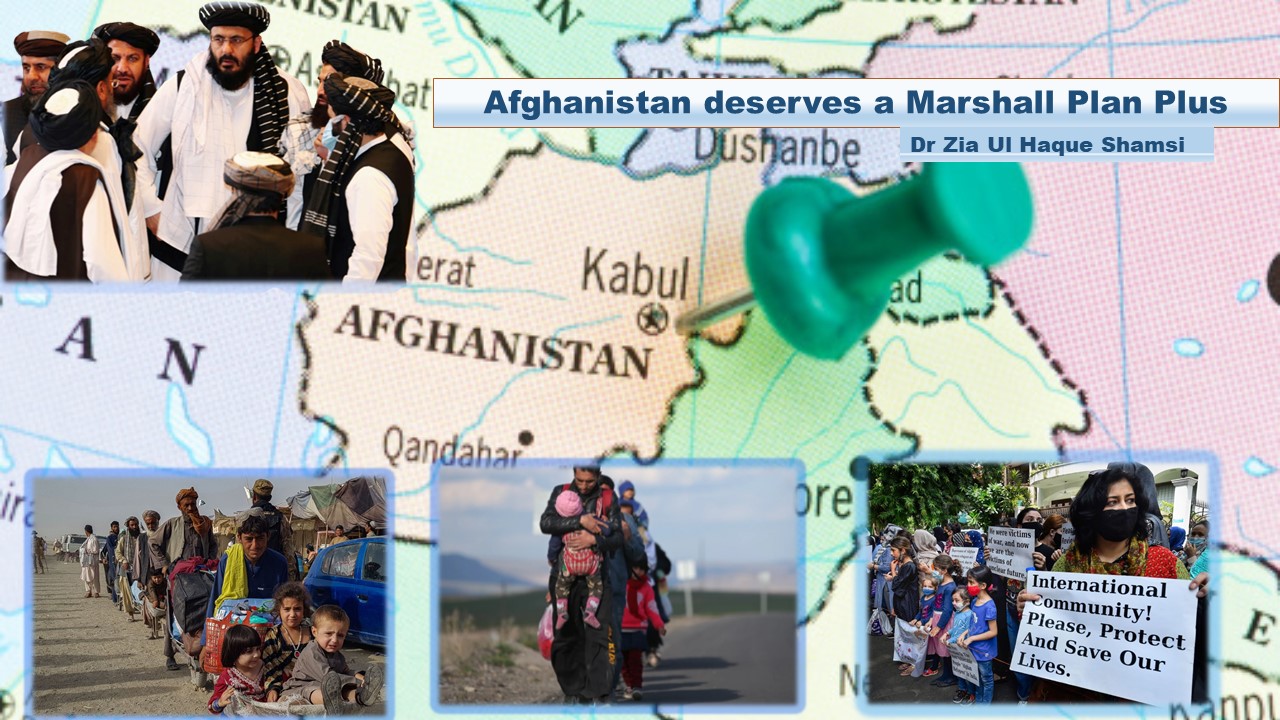Perhaps, only Kashmiris and Palestinians have suffered more than Afghans due to prolonged wars on their home soil. Now that the US and NATO forces’ withdrawal has been completed following the Doha Agreement of February 29, 2020, it is time to care for the people of Afghanistan, instead of taking revenge from the incoming Taliban-led government. This is essentially required to avert an impending humanitarian crisis that seems imminent in the absence of a wide-ranging and large scale economic and humanitarian assistance to the new Afghan government.
While there is no denying that Afghanistan has suffered the most in the wars and conflicts over the last four decades, it is necessary to mention that Pakistan’s sufferings in the process are largely ignored, perhaps deliberately. Pakistan was instrumental in supporting Afghan’s resistance against the Soviet’s occupation of Afghanistan starting in December 1979 until February 1989, in concert with the active economic and military support of US-led western allies and Islamic countries. In the process, Pakistan became home to over three million refugees who spread over the entire length and breadth of the country, primarily due to the Zia government’s policies to appease a certain segment of the society. However, Iran successfully confined the refugees in dedicated camps and did not face the issues that Pakistan was faced with due to its faulty policies.
As there was no respite for the people of Afghanistan due to the intervening civil war from 1988 to 2001, another superpower of the time decides to flex its muscles in the most rugged battlegrounds in the world. The US and NATO troops arrive in Afghanistan to punish Al Qaida for their alleged involvement in the 9/11 attacks without any worthwhile evidence and investigations. The people of Afghanistan were made to suffer for hosting Al Qaida leadership on their home soil for twenty long years. So were the people of Pakistan, but for a different reason. Pakistan decided to form part of the global efforts against terrorism, which did not go down well with the resistance movement led by the Taliban, who saw their old supporters as the new enemies. Several splinter groups were formed in Pakistan, well supported by the Afghan Taliban as well Indian agencies to wage a hybrid war on Pakistan that often used kinetic means to create chaos in the society.
The US and the NATO troops have left Afghanistan more unsettled than it was before they entered in 2001. The people of Afghanistan now have empty banks, destroyed infrastructure, acute food shortage, nearly no schools and hospitals, and above all an incoming government, which is not acceptable to the global leaders who are responsible for the situation Afghan people are faced with. Taliban do not have the requisite experience to govern this most difficult state in the world that had been to wars and conflicts for over four decades. Moreover, the Taliban government is not recognised primarily for the lack of credibility in the formation of an all-inclusive government as was desired by global players. Even the regional countries who have supported the Taliban in the entire process may be finding it difficult to decide on the recognition part of the process.
Taliban would have to show magnanimity in their approach. They must appreciate that they are not waging a guerrilla war anymore and they are required to deliver the much-expected governance to their people. Otherwise, Afghan soil is littered with unused weapons and everybody owns one, carries one, proudly displays one, and does not shy away from using it.
The Afghan economy is on the verge of collapse due to the non-availability of liquidity to govern the state. The US decision to freeze Afghan assets worth 9 Billion USD is not expected to be cleared in near future. EU has announced one billion Euros as part of the humanitarian assistance fearing an inflow of economic refugees. However, it may not suffice to avert a looming disaster that would bring disastrous consequences not only for the region but for extra-regional players also.
Therefore, it is necessary to understand that the people of Afghanistan are in desperate need of wide-ranging and large scale assistance before the winters set in, which are usually dry, cold and very harsh. Afghan women and children have suffered the most over the last four decades. While the western capital’s concern about women education is highly appreciated, it is incumbent upon them to persuade their lawmakers to ensure that they are provided with essential food, and medicine at this time.
Afghanistan has been systematically destroyed over the last four decades and a number of regional and extra-regional powers have played a part in it. Therefore, it is now the responsibility of each nation and international organisations to pool their resources in a coordinated manner to rebuild the war-torn state from scratch to ensure that Afghan soil is never used again to harm any other sovereign state, including Pakistan which has suffered the most on this account at the hands of TTP.
The writer is the author of the book ‘Nuclear Deterrence and Conflict Management Between India and Pakistan’. He is presently working as the Director at the Centre for Aerospace & Security Studies (CASS). The article was first published in Daily Times. He can be reached at cass.thinkers@gmail.com
Image Source: Etfa Khurshid Mirza




